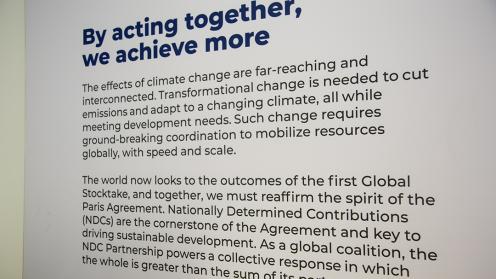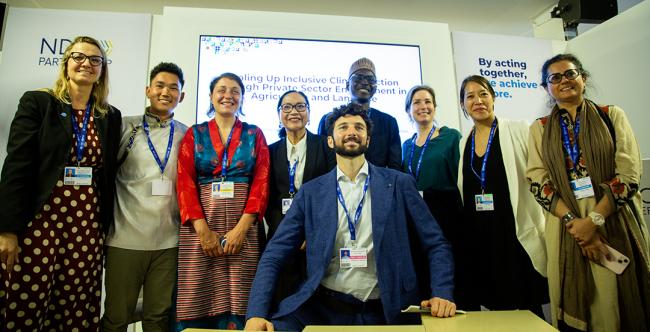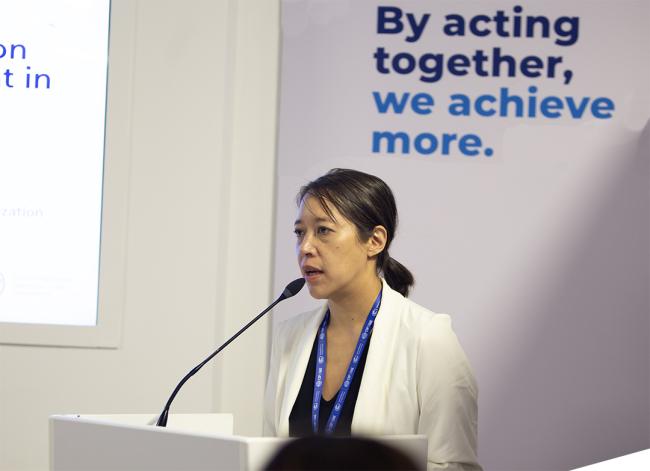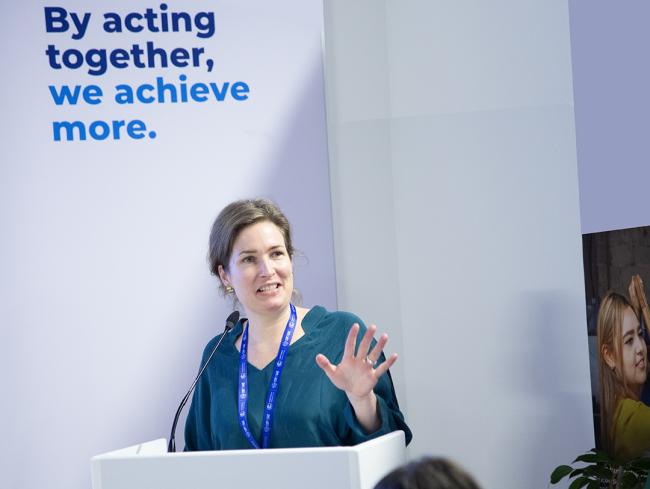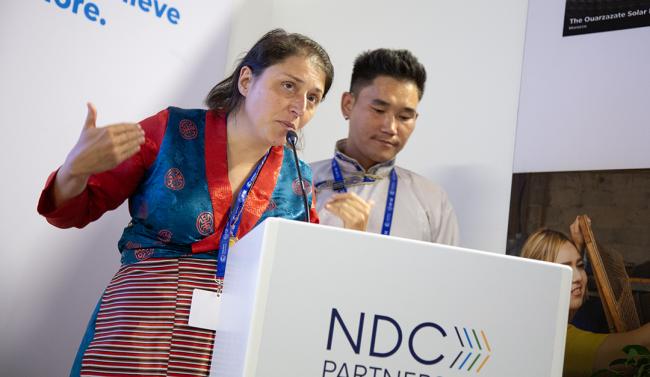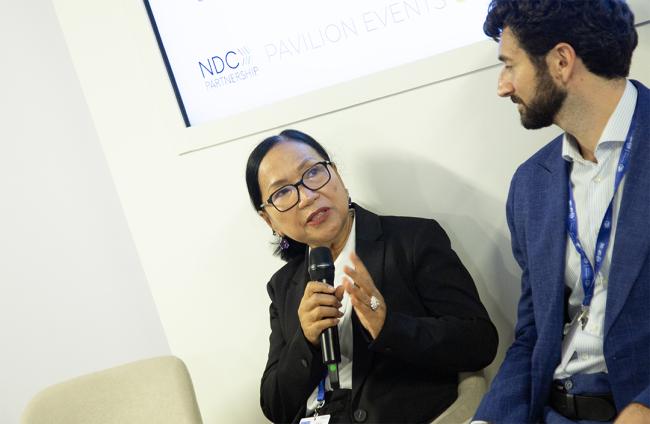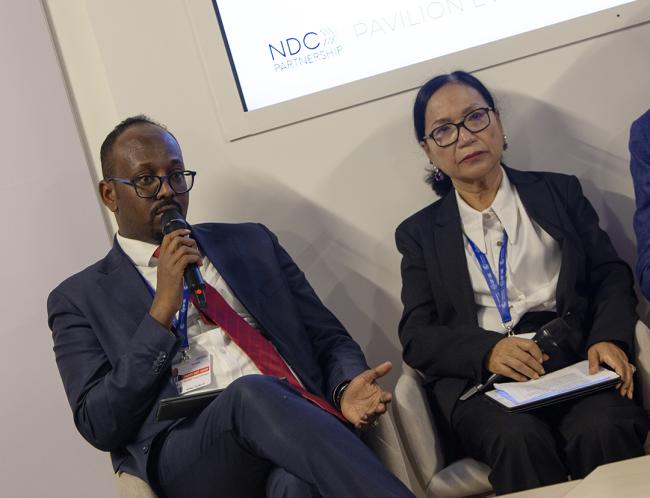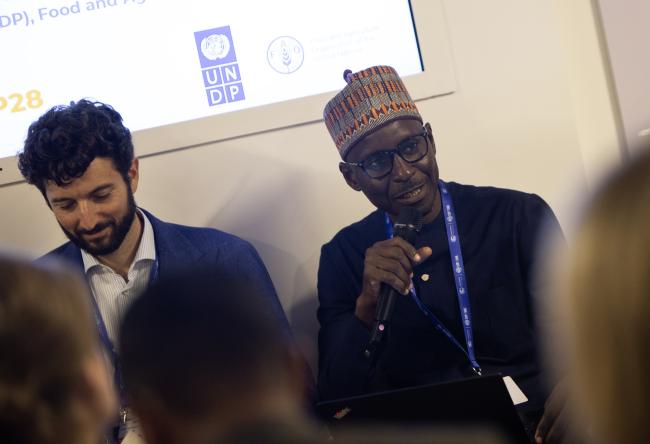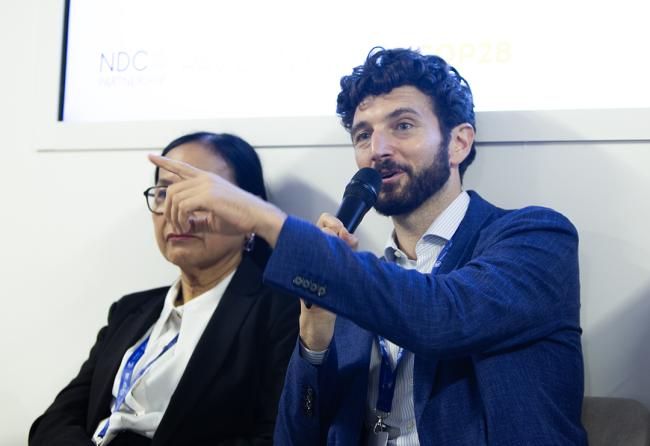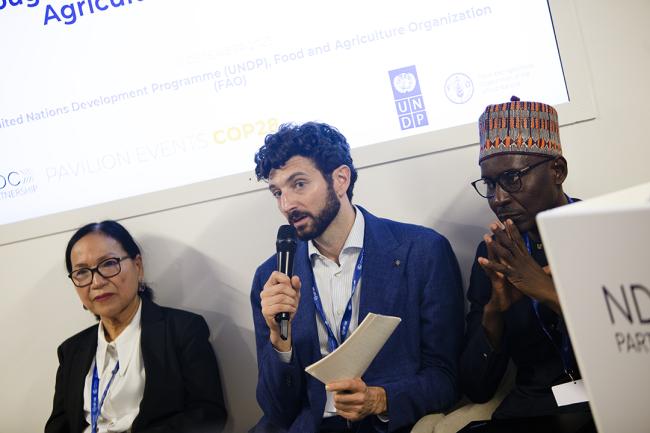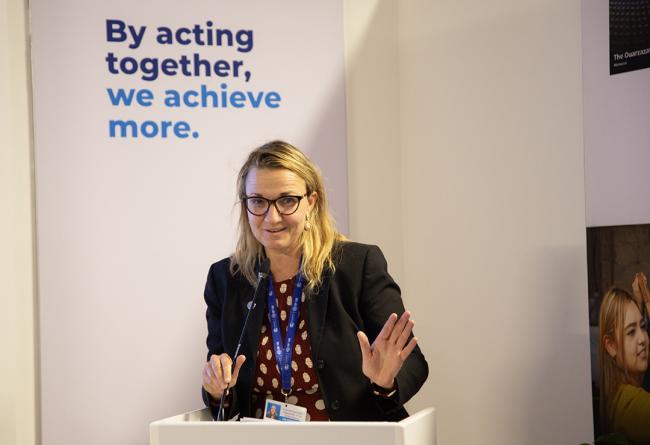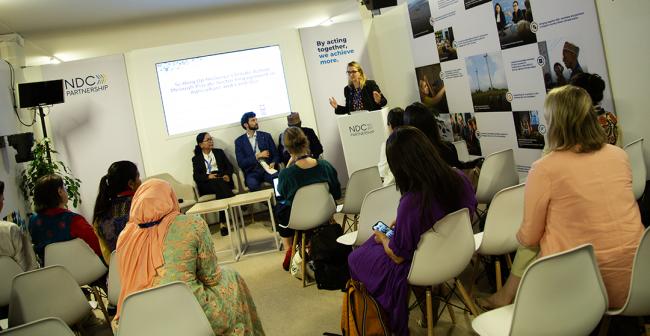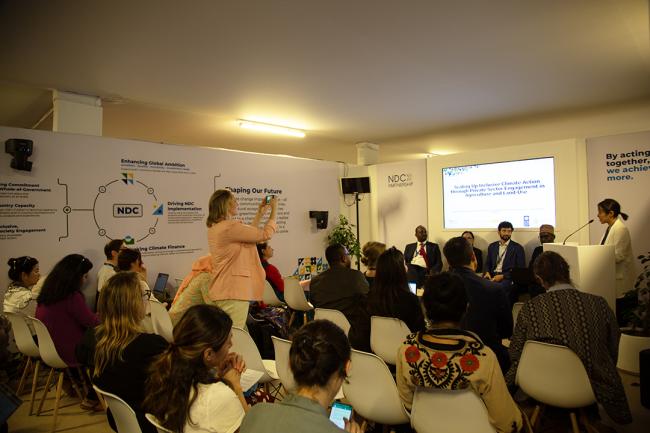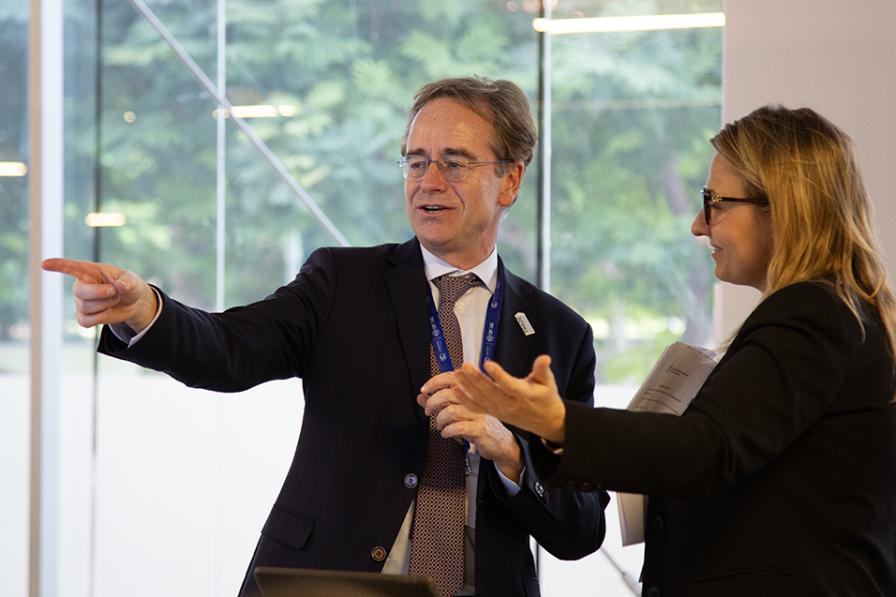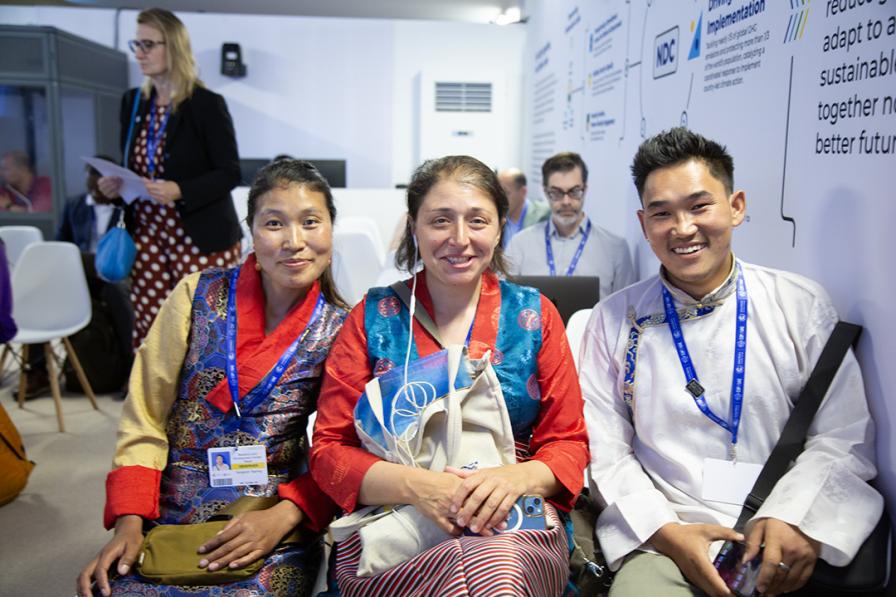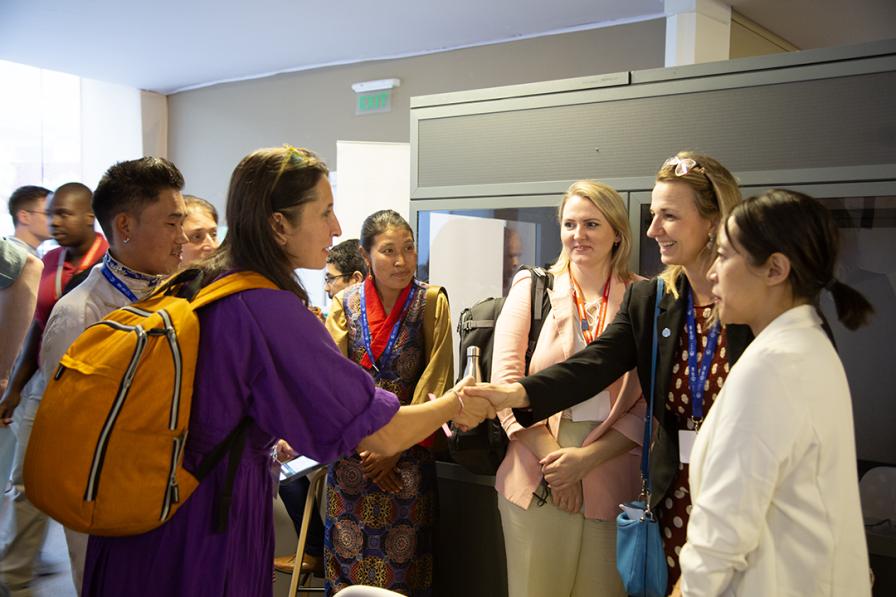Summary
Government, civil society, and private sector representatives underscored the important role that private financing and public-private partnerships can play in reducing emissions and building resilience in the world’s agrifood systems and delivering big gains for efforts to combat climate change.
Scaling up Inclusive Climate Action through Private Sector Engagement in Agriculture and Land Use
Agriculture, land use, and broader agrifood systems account for over 30% of global greenhouse gas (GHG) emissions, but the private sector has not been sufficiently engaged in efforts to scale up mitigation and adaptation for this crucial link in the climate fight. At this event, government, civil society, and private sector representatives underscored the important role that private financing and public-private partnerships can play in reducing emissions and building resilience in the world’s agrifood systems and delivering big gains for efforts to combat climate change
Moderator Julie Teng, Technical Specialist on Adaptation Planning and Global Coordinator, Scaling up Climate Ambition on Land Use and Agriculture (SCALA), UN Development Programme (UNDP), opened the event by stressing that there is a clear understanding that reaching climate targets requires bringing non-state actors into the picture and strengthening public-private sector cooperation to scale up action.
In opening remarks, Nina Alsen, Federal Ministry for the Environment, Nature Conservation, Nuclear Safety and Consumer Protection (BMUV), Germany, highlighted the SCALA programme’s work to support climate-resilient agriculture, forestry, and land use measures and achieve the goals of National Adaptation Plans (NAPs) and Nationally Determined Contributions (NDCs). Alsen noted that private sector financing to agriculture and land use sectors is too low and that SCALA’s aim is to support transformative change through interlinkages between countries. This can be achieved by: facilitating multi-stakeholder collaboration between the public and private sectors; strengthening the evidence base to incentivize private investment; addressing barriers through public de-risking instruments; and enhancing the enabling environment for inclusive decision-making processes that strengthen private sector engagement and secure the rights of vulnerable groups.
Offering an on-the-ground example of local climate action, Pasang Norbu Lama, HELP Nepal Network, spoke about his work with Tergar Charity Nepal, a winner of the 2023 UNDP Equator Initiative Prize for projects building local community resilience through nature-based solutions. Lama pointed to climate challenges faced in the remote village of Samagaun, such as devastating glacial melt, landslides, and floods that have cost lives and undermined food security. The organization developed a greenhouse initiative to enable the local community to locally grow and source vegetables, such as tomatoes, zucchini, and cucumbers. He said private sector and government support is needed to scale up the project so that people no longer need to leave the village to seek work and to increase accessibility to necessary services for villagers.
During a panel discussion, featuring more examples of local level action to transform agrifood systems, Chan Phaloeun, Ministry of Agriculture, Forestry and Fisheries, Cambodia, highlighted efforts to promote partnerships between the private sector and smallholder farms. She emphasized the need for streamlined administrative processes and collaboration to share knowledge about the effectiveness of climate adaptation measures.
Ahmed Yusuf Ahmed, Ministry of Environment and Climate Change, Somalia, noted that two primary agricultural and land use sectors – livestock and farming – need large quantities of land and water and are vulnerable to climate change. Ahmed underscored collaborative work with the Green Climate Fund (GCF), UNDP, and SCALA to support communities’ land and water needs and incorporate private sector action.
Abdou Aziz Diedhiou, La Banque Agricole, Senegal, stressed the need to adapt the bank’s business model so that it can be the first bank in Senegal to implement a programme on clean financing, means a strong push to de-risk agriculture financing and build a green portfolio with many products related to adaptation and mitigation. Diedhiou noted the bank’s push to reduce the cost of capital and manage climate risk, which includes better understanding how climate impacts financing and helping small farmers access credit.
Keith Agoada, CEO, Producers Trust, highlighted examples of collaboration between non-profit and for-profit actors to help farmers connect with markets. He stressed that by building vertical supply chains, local products can be produced, packaged and sold, or exported in ways that ensure fair returns to communities. Agoada emphasized that connecting the global and the local to build global supply chains will have benefits for food security at the local level. He discussed efforts by seed growers to find global buyers, such as Carlsberg Group’s interest in purchasing fonio grain in Senegal, which would add industrial processing to the supply chain and help retain more of this difficult-to-harvest grain in the countryl. Agoada stressed the need for more case studies that demonstrate good investments to bankers at the local level, which also build community resilience.
On the need for public sector support for such projects, Diedhiou noted that banks often are not interested in financing for small farmers and that private sector actors, such as Producers Trust, can help fill such gaps. Agoada underscored that the public sector can be involved by guaranteeing purchasing, and Phaloeun highlighted public sector support for technology and infrastructure.
Closing the event, Julia Wolf, SCALA Global Coordinator and Natural Resources Officer, Food and Agriculture Organization of the UN (FAO), emphasized that farmers and local producers “need to be in the driver’s seat.” However, she said that there is presently an imbalance in terms of recent declarations, for example the Emirates Declaration on Sustainable Agriculture, Resilient Food Systems, and Climate Action. She said agriculture negotiations under the Sharm el-Sheikh joint work on implementation of climate action on agriculture and food security at COP 28 have failed. Wolf stressed the importance of action on the ground that takes account of the particularity of rural people and their connections with urban areas. Wolf also underscored the crucial importance of finance, and, in particular, inclusive finance. She noted that presently just 1.7% of climate finance going to the agriculture sector reaches the local farmer, and that there is a need for voices and concrete examples that can make the case for diversity and increased financial support for inclusive investment for transformative change in agrifood systems.
Organizer: FAO and UNDP
Contact: Julia Wolf | julia.wolf@fao.org and Julie Teng | julie.teng@undp.org
For more information: https://www.fao.org/in-action/scala/en and https://www.adaptation-undp.org/scala
To receive free coverage of global environmental events delivered to your inbox, subscribe to the ENB Update newsletter.
All ENB photos are free to use with attribution. For this COP 28 side event, please use: Photo by IISD/ENB | Angeles Estrada Vigil
